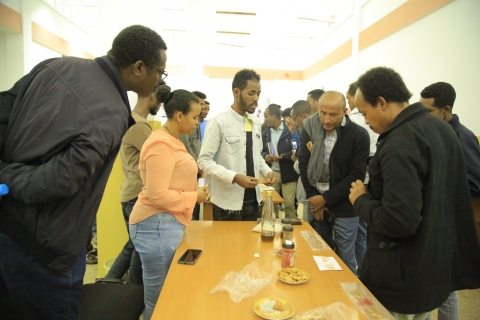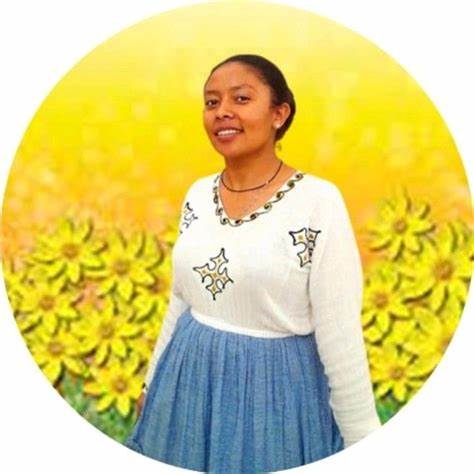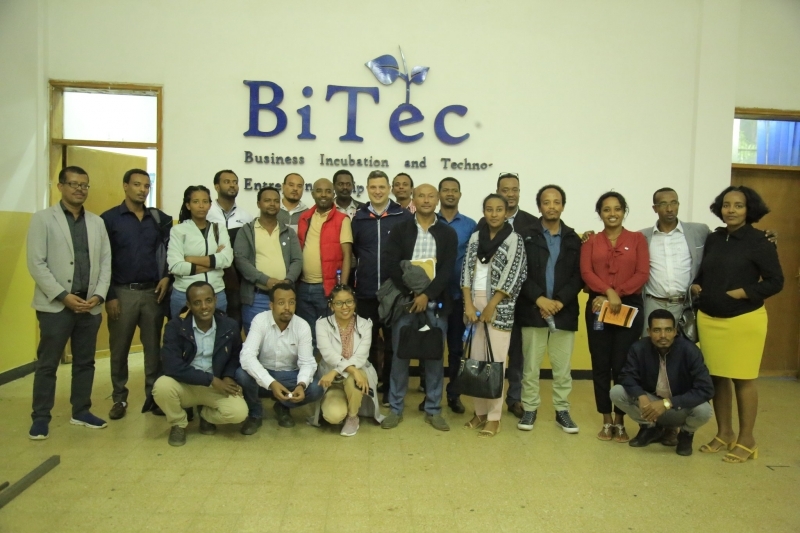How can we foster a robust innovation culture that contributes meaningfully to developing a sustainable Africa? The Seifu-Bit Makerspace at Bahir Dar Institute of Technology in Ethiopia is paving the way for this.
The makerspace, founded in 2019 by Professor Seifu and Dr Lara Arlen, CEO of the Centre for Global Equality in the UK, has been making waves in the African innovation scene. It was named “The most active makerspace of the year” at the 2022 African Makerspace Gathering in Cape Town, South Africa.
Supported by the Bill & Melinda Gates Foundation and the partners of the Centre for Global Inequality, the Seifu-Bit Makerspace has become a hub of innovation and entrepreneurship. With a strong community of senior and undergraduate engineering students, it has since merged with the business incubation component of the university’s techno-entrepreneurship centre.
Leading the charge at Seifu-Bit Makerspace is Ms Bezawork Tilahun, a software engineer, a lecturer at Bahir Dar University, and an inspiring ambassador in the Women Techmakers community. Bezawork is a driving force behind the makerspace, motivated by her passion for helping young people solve community problems and turn their tech creations into viable businesses.
Listen to the whole interview with Bezawork in the audio below.

The Seifu-Bit Makerspace’s clear mission is to create an innovation ecosystem in the university community and promote an innovation culture. According to Ms Bezawork Tilahun, the maker space’s leader, one of its key objectives is “to engage students in informal learning and to create a problem-solving generation of students.” To achieve this, the makerspace runs youth training programmes on prototyping, human-centred design, and entrepreneurship.
But the maker space’s impact extends far beyond the university campus. It also engages with the local community, conducting surveys to understand their needs and organizing hackathons where people work together to develop solutions to community problems. Bezawork explains, “We want to solve community problems such as sustainable agricultural products and agro-mechanization designs for farmers.”
Moreover, the makerspace is a hub for innovators and entrepreneurs, supporting them throughout the startup lifecycle. Bezawork says, “We design their venture, incubate them, and connect them with investors and funding opportunities.”
The maker space’s influence can be felt across the university. Bezawork explains, “The makerspace supports every department that needs help with student projects.” The makerspace also offers a space for students to work and even reside in. According to Bezawork, “They graduate once they find their business.” The maker space’s impact on job creation is significant, as it helps the university create jobs that benefit students and the community.
For Bezawork, one of the most exciting aspects of working at the makerspace is “learning from the students while they are learning things from different fields simultaneously.” She supervises projects from varying fields, giving her “a chance to learn about mechanical engineering, robotics, then chemists, chemical engineering that is unrelated to her background.” This cross-disciplinary approach to learning is one of the many reasons why the Seifu-Bit Makerspace is a valuable resource for the university and the wider community.

The maker space’s commitment to inclusiveness and diversity is evident in its programs, which include a women’s innovation support group. This group is open to women from diverse backgrounds. Selection criteria ensure women with different preferences and backgrounds are encouraged to participate and become leaders.
MakerSpace also prioritizes community benefits in the products they create. During the COVID-19 pandemic, they used 3D printers and laser cutting machines to produce PPAs distributed to hospitals and military centres. Additionally, they give out farming equipment and devices to local women farmers to support them with post-harvest processing. Bezawork emphasizes that contributing to the community is essential to the maker space’s ethos. The makerspace is always looking for ways to support local communities and make a positive impact.
The BiT makerspace and the broader innovation ecosystem in Ethiopia face challenges with limited affordability and accessibility of hardware resources due to heavy taxes and lagging institutional support for start-ups in terms of funding that can aid them in growth and profitability. However, Bezawork and her team are striving towards growth and sustainability by strengthening the local stakeholder constellation via matchmaking events and supporting the development of local incubators and hackathon programmes.
Ethiopia’s Seifu-Bit Makerspace at Bahir Dar Institute of Technology has become a vibrant hub for innovation and problem-solving, fostering an innovation culture in the university and broader maker community through its various programs and initiatives. The makerspace has significantly impacted the university community-wide as students know they have a place to work to achieve their dreams.
The Seifu-Bit Makerspace is a shining example of how a university can further the potential of STEM education in Ethiopia and leverage innovation and technology for positive societal change. With the makerspace boldly paving the way for the African innovation scene, we cannot wait to see how the innovation future of Africa unfolds!


